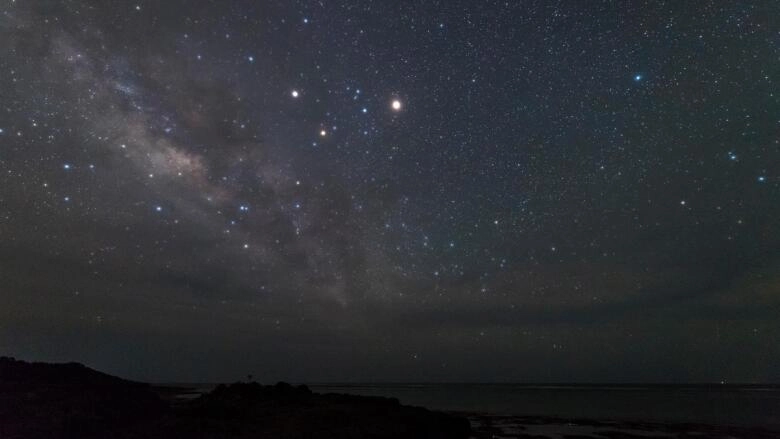New regulations will be enforced across public and private spaces, and violators will be given a grace period for adjustments.
Abu Dhabi has unveiled a new 'Dark Sky Policy' that will extend its oversight to lights within homes and offices as part of efforts to combat light pollution. This news was announced on Wednesday evening.
The Department of Municipalities and Transport (DMT) announced that the policy aims to provide guidelines for lighting practices to address the growing concern of light pollution and preserve the night sky.
The policy will focus on regulating interior lighting in private spaces to prevent excessive spillage outside. It will also target outdoor lighting in both public and private sectors, especially new and existing fixtures. However, cultural festivals and events will be exempt from these regulations.
Salem Al Kaabi, Director-General of Operations Affairs at DMT, expressed the importance of the policy in preserving the night sky's natural beauty. He stated, "The Abu Dhabi Dark Sky Policy embodies our commitment to a future where the beauty of the night sky is cherished and protected."
The policy implementation includes a methodology to address light pollution and awareness programs. Regulations will cover public buildings, streets, parks, beaches, commercial organisations, open spaces, and agricultural and industrial areas. They will include shielded lighting, motion-activated security lighting, and a coordinated shutdown of non-security lighting at midnight.
Policy violators will be allowed to adjust their lighting practices accordingly. The policy is part of a broader approach aligned with the goals of the International Dark Sky Association, focusing on;
- Promoting sustainable lighting systems
- Protecting the natural environment and wildlife, Supporting astronomy research
- Enhancing public health
- Promoting sustainable development.
Residents and entities must comply with the policy's conditions, applicable manuals, and the Estidama Pearl Building Rating System.
 Indian Rupee
Indian Rupee Pound Sterling
Pound Sterling UAE Dirham
UAE Dirham US Dollar
US Dollar Algerian Dinar
Algerian Dinar Angolan Kwanza
Angolan Kwanza Argentine Pesos
Argentine Pesos Armenian Dram
Armenian Dram Aruban Florin
Aruban Florin Australian Dollar
Australian Dollar Azerbaijani Manat
Azerbaijani Manat Bahraini Dinar
Bahraini Dinar Baht
Baht Balboa
Balboa Bangladeshi Taka
Bangladeshi Taka Belarusian Rubles
Belarusian Rubles Belize Dollars
Belize Dollars Bermuda Dollars
Bermuda Dollars Bhutanese ngultrum
Bhutanese ngultrum Bolivares Fuertes
Bolivares Fuertes Brazilian Reais
Brazilian Reais Bulgarian Leva
Bulgarian Leva Burundian Franc
Burundian Franc Cambodian Riels
Cambodian Riels Canadian Dollar
Canadian Dollar Central African CFA franc
Central African CFA franc Chilean Pesos
Chilean Pesos Colombian Pesos
Colombian Pesos Colón
Colón Congolese Franc
Congolese Franc Cuban Pesos
Cuban Pesos Danish Krone
Danish Krone Denars
Denars Djiboutian Franc
Djiboutian Franc Dominican Pesos
Dominican Pesos Dong
Dong East Caribbean Dollars
East Caribbean Dollars Egyptian Pounds
Egyptian Pounds Ethiopian Birr
Ethiopian Birr Euro
Euro Forint
Forint Georgian Lari
Georgian Lari Ghanaian Cedi
Ghanaian Cedi Guarani
Guarani Guinean Franc
Guinean Franc Guyanese Dollars
Guyanese Dollars Hong Kong Dollars
Hong Kong Dollars Hryvnia
Hryvnia Icelandic Krona
Icelandic Krona Indonesian Rupiahs
Indonesian Rupiahs Iranian Rials
Iranian Rials Jordanian Dinar
Jordanian Dinar Kenyan Shilling
Kenyan Shilling Kips
Kips Koruny
Koruny Krone
Krone Kuna
Kuna Lati
Lati Lebanese Pounds
Lebanese Pounds Libyan Dinar
Libyan Dinar Lira
Lira Litai
Litai Malagasy Ariary
Malagasy Ariary Malawian Kwacha
Malawian Kwacha Malaysian Ringgit
Malaysian Ringgit Maldivian Rufiyaa
Maldivian Rufiyaa Mexican Pesos
Mexican Pesos Moldovan Leu
Moldovan Leu Moroccan Dirham
Moroccan Dirham Myanmar Kyat
Myanmar Kyat Nairas
Nairas Namibian Dollars
Namibian Dollars Nepali Rupee
Nepali Rupee New Dollars
New Dollars New Lei
New Lei New Shekels
New Shekels New Zealand Dollars
New Zealand Dollars Nuevos Soles
Nuevos Soles Omani Rial
Omani Rial Pakistani Rupees
Pakistani Rupees Papua New Guinean Kina
Papua New Guinean Kina Philippine peso
Philippine peso Pula
Pula Qatari Rials
Qatari Rials Quetzales
Quetzales Rand
Rand Russian Rubles
Russian Rubles Rwandan Franc
Rwandan Franc Saudi Riyals
Saudi Riyals Singapore Dollars
Singapore Dollars Soms
Soms South Korean Won
South Korean Won St. Helena Pounds
St. Helena Pounds Sudanese pound
Sudanese pound Sums
Sums Swedish Krona
Swedish Krona Switzerland Francs
Switzerland Francs Syrian Pounds
Syrian Pounds Tajikistani Somoni
Tajikistani Somoni Tanzanian Shilling
Tanzanian Shilling Tenge
Tenge Tugriks
Tugriks Tunisian Dinar
Tunisian Dinar Ugandan Shilling
Ugandan Shilling Uruguayo Pesos
Uruguayo Pesos West African CFA franc
West African CFA franc Yemeni Rials
Yemeni Rials Yen
Yen Zambian Kwacha
Zambian Kwacha Zlotych
Zlotych

